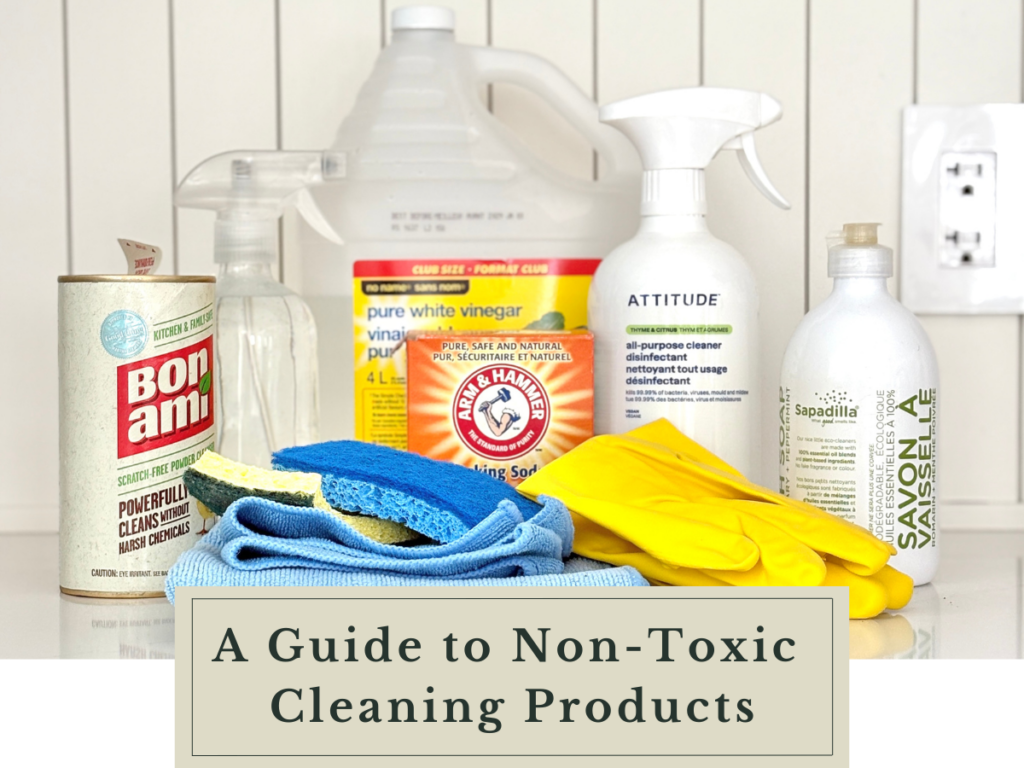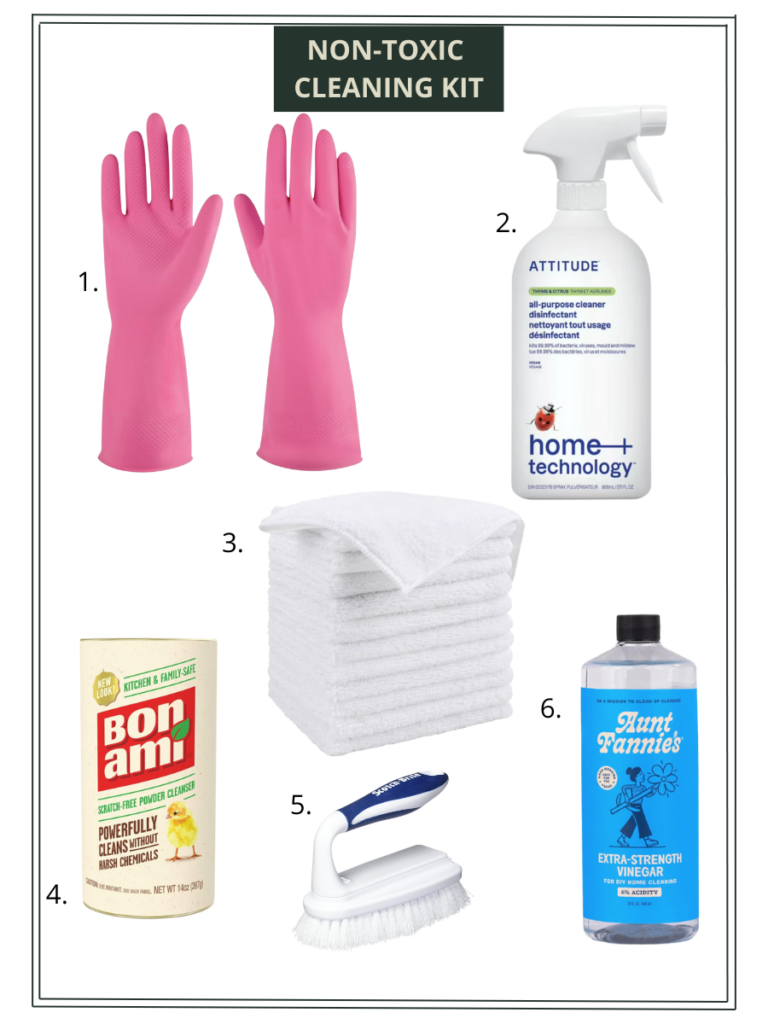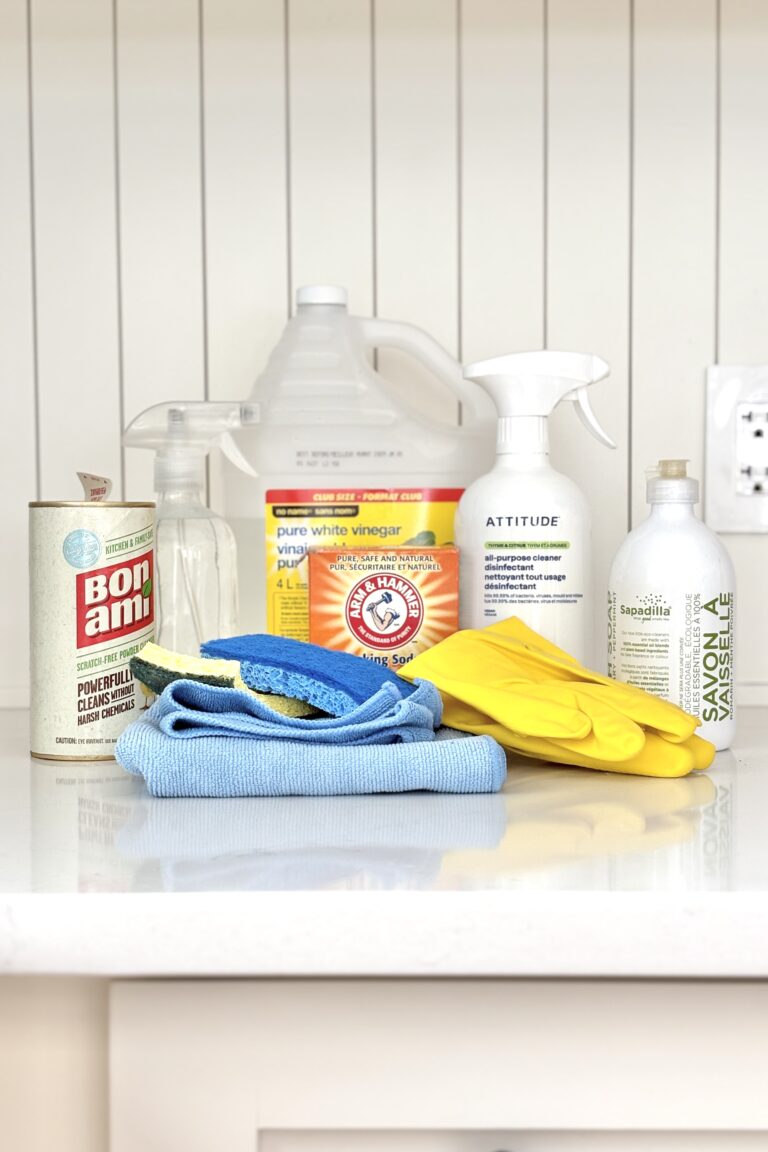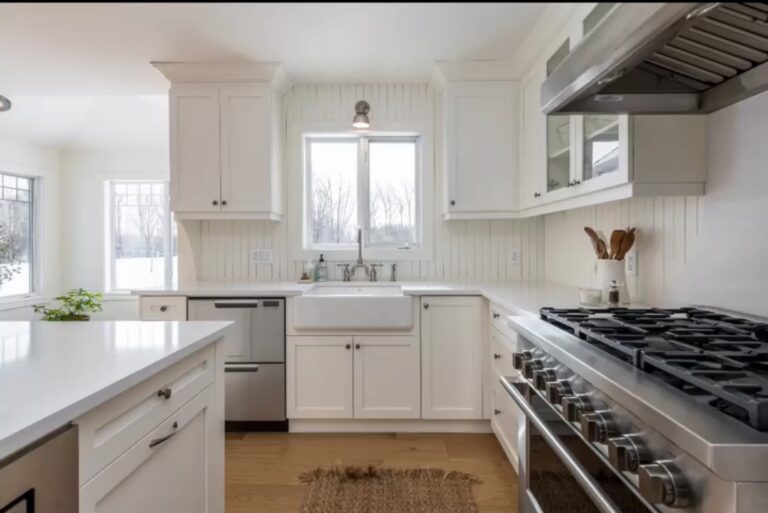
How to Clean Your Home Naturally and Safely: A Guide to Non-Toxic Cleaning Products
When I first renovated my home, I believed that a truly clean house had to smell like a laboratory—strong, chemical-laden fragrances were my benchmark for cleanliness. The sharper the scent, the cleaner the space—or so I thought. But as I delved deeper into caring for delicate surfaces like marble countertops, quartz backsplashes, and hardwood floors, I discovered that many of the products I relied on were not only damaging my home’s materials but also compromising my health.
This revelation led me on a journey to explore safer, more sustainable ways to clean—methods that are gentle on both my home and the environment. Today, I’m sharing everything I’ve learned about non-toxic cleaning, from why traditional products can be harmful to how you can create a sparkling, chemical-free home with simple, natural ingredients.
Why Traditional Cleaning Products Are Harmful
Let’s start with the basics: many conventional cleaning products are packed with harsh chemicals that can wreak havoc on your home and health. Over time, these chemicals can degrade surfaces, leaving your beautiful marble countertops dull or your hardwood floors scratched. But the damage doesn’t stop there.
According to the Environmental Protection Agency (EPA), many cleaning products release volatile organic compounds (VOCs) that pollute indoor air quality. These fumes can irritate your respiratory system, trigger allergies, and even contribute to long-term health issues. What’s more, these chemicals don’t just disappear—they make their way into our waterways, harming wildlife and ecosystems.
The Rise of Safer, Healthier Alternatives
Thankfully, the demand for eco-friendly cleaning products has grown, and the market is now flooded with options labeled “natural,” “green,” or “non-toxic.” But here’s the catch: not all of these products live up to their claims.
The Consumer Union, a trusted nonprofit organization, cautions that terms like “surfactant,” “fragrance,” or “cleaning agent” on product labels should raise immediate red flags. These vague descriptors often conceal harmful chemicals that can compromise your health and home. To clean safely and effectively, it’s crucial to carefully examine ingredient lists and choose products with clear, transparent labeling—or, better still, craft your own cleaning solutions using simple, natural ingredients. One resource I’ve come to rely on for identifying harmful chemicals is EWG.org (Environmental Working Group), a fantastic tool for decoding product labels and making informed, health-conscious choices.
My Simple Non-Toxic Cleaning Guide
Creating a non-toxic cleaning routine doesn’t have to be complicated. In fact, it can be as simple as stocking your pantry with a few key ingredients and embracing a minimalist approach. Here’s my tried-and-true cleaning kit and routine that keeps my home sparkling without the harsh chemicals.the harmful chemicals.

My Non-Toxic Cleaning Kit:
- All-Purpose Cleaner: Look for a natural, plant-based cleaner or make your own with mild dish detergent and water.
- Mild Abrasive Cleaner: Bon Ami is a fantastic, non-toxic option for scrubbing stubborn spots.
- Glass Cleaner: Mix equal parts white vinegar and water in a spray bottle for a streak-free shine.
- Rubber Gloves: Protect your hands while cleaning.
- Lint-Free Cloths: Opt for white microfiber or cotton cloths to avoid streaks and residue.
- Medium Bristle Scrub Brush: Perfect for tackling sinks, tiles, and other surfaces without scratching.
DIY Non-Toxic Cleaning Solutions:
One of the joys of non-toxic cleaning is how easy it is to whip up your own solutions using ingredients you likely already have at home. Here are a few of my favorite recipes:
- Mild Dish Detergent All-Purpose Cleaner
Mix 2 cups of warm water with 2 tablespoons of mild dish detergent. This gentle solution is perfect for wiping down countertops, cleaning walls, and removing fingerprints. - Baking Soda Scrub
Baking soda is a miracle worker when it comes to tackling tough stains without scratching surfaces. To make a paste, combine 3 parts warm water with 1 part baking soda. Use it to clean sinks, bathtubs, and stovetops with ease. - Vinegar-Based Glass Cleaner
For sparkling windows and mirrors, mix equal parts white vinegar and water in a spray bottle. It’s streak-free, non-toxic, and incredibly effective.
Why Choose Non-Toxic Cleaning?
Switching to non-toxic cleaning methods has been one of the most rewarding changes I’ve made in my home. Not only do these natural alternatives keep my space spotless, but they also reduce my exposure to harmful chemicals, improve indoor air quality, and minimize my environmental footprint. The best part? You don’t have to sacrifice cleanliness for safety. With a few simple ingredients and a little effort, you can achieve a home that’s both pristine and healthy.

